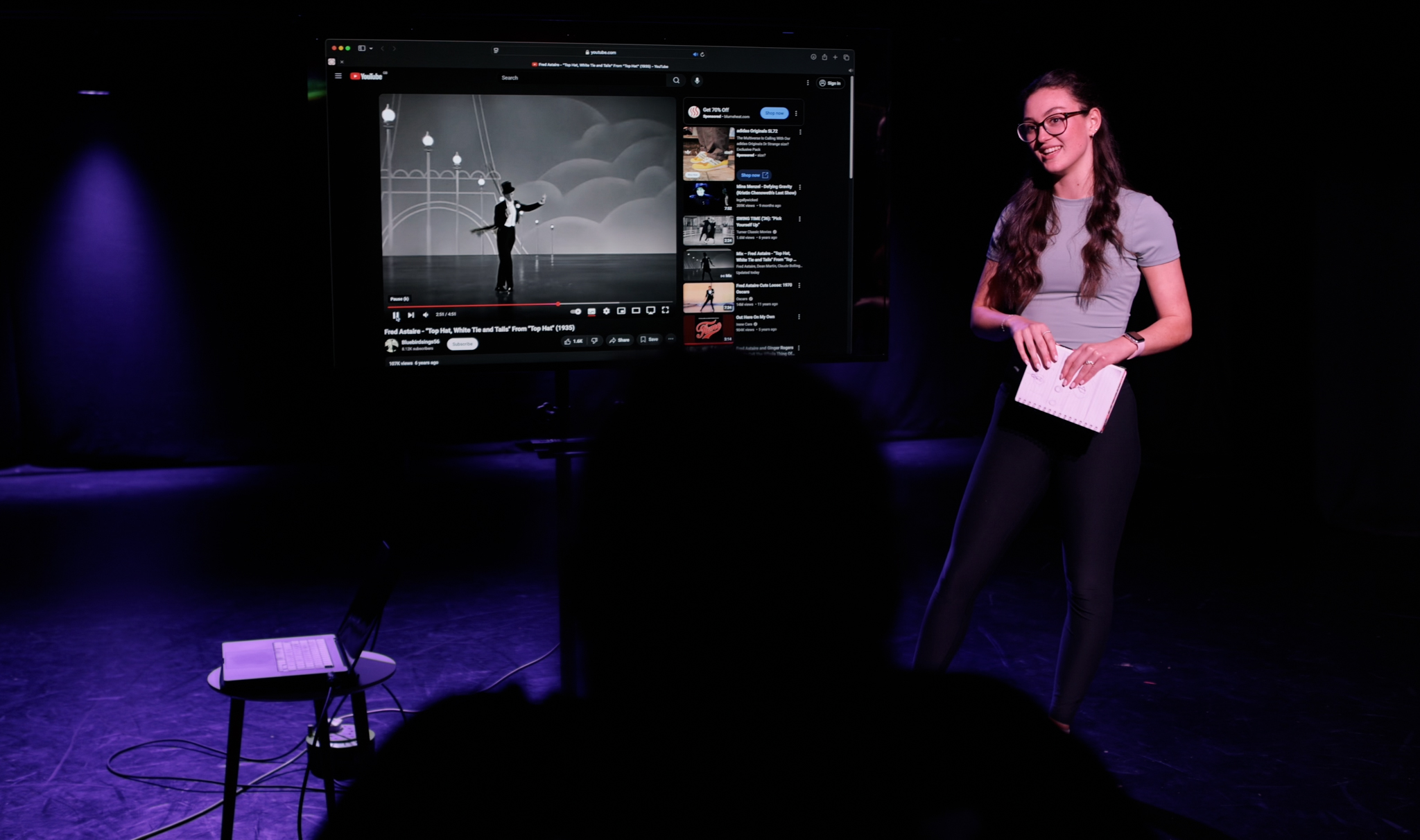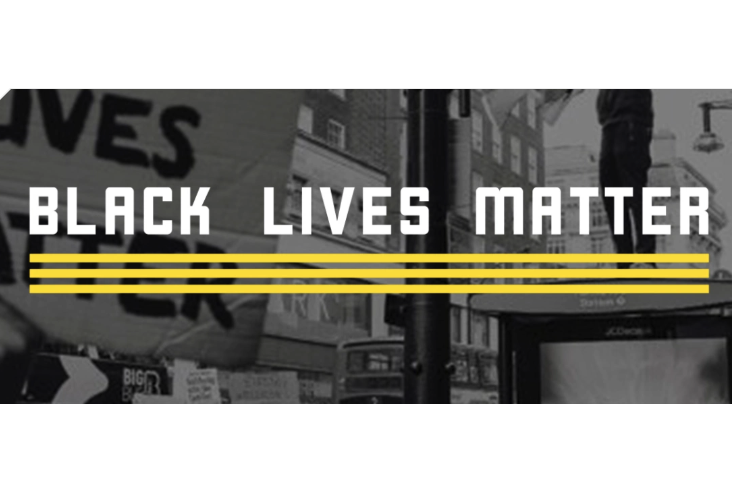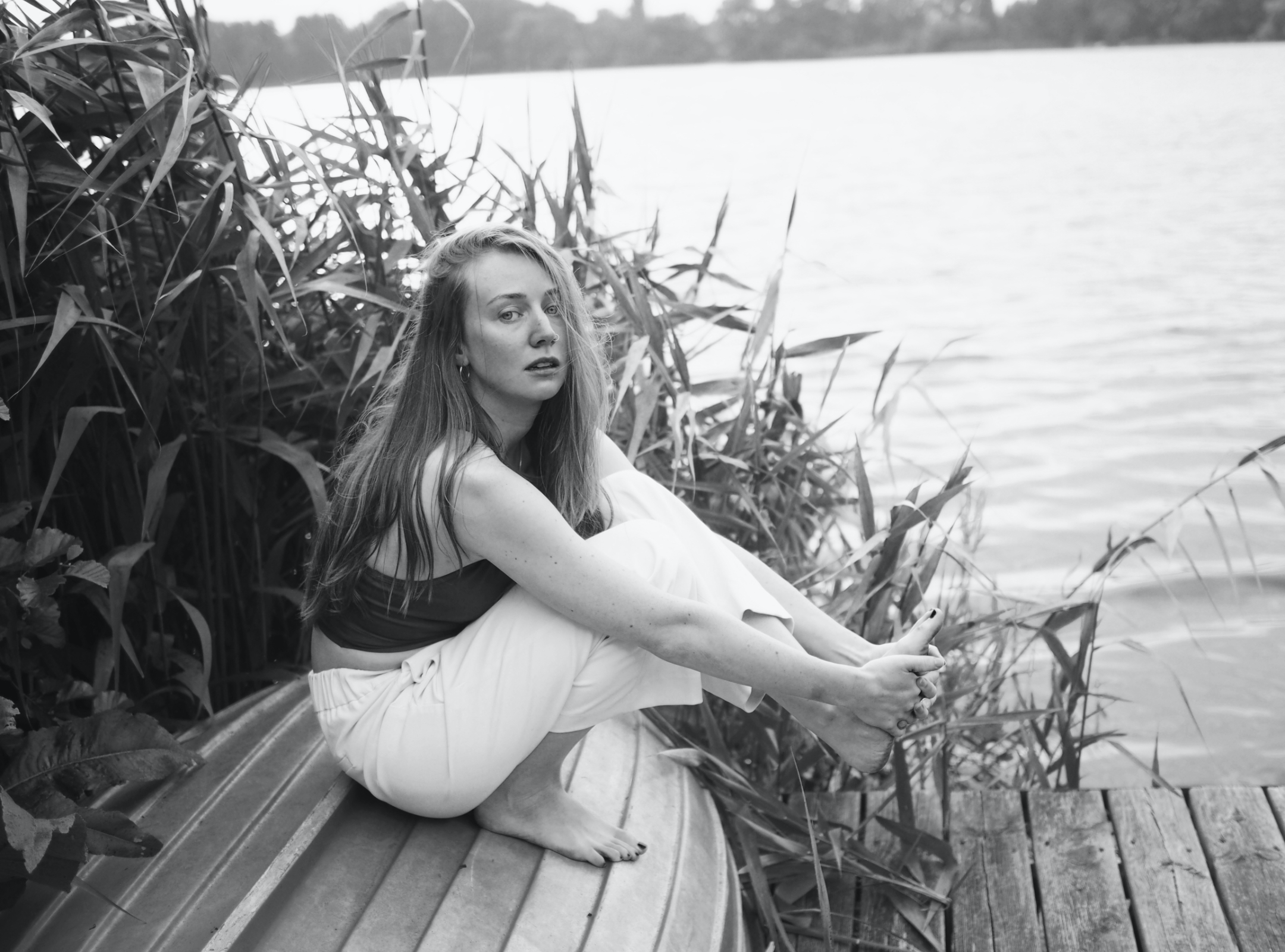On our MA Performing Arts, students take part in a business module, in which they create their own business plan and pitch to industry experts. We caught up with them to find out more about their projects, and what they learned from the process.
What were your business ideas, and why did you choose them?
Lucie: My business was Lucy Rowley Enterprises – employing myself as a performer and choreographer. One strand was performing on cruise ships and various venues, and another was Lucy Rowley Creative, creating online dance tutorials in multiple styles for my own website. Performing has always been my passion. My job has always been teaching – I’m a qualified dance teacher and love teaching dance to kids and other performers. I wanted to incorporate that into a business around my passion.
Hannah: My project was a children’s theatre company that tours schools and fringe venues, bringing educational curriculum-based theatre to younger children. We’d use minimal set and lighting, packaging curriculum skills in a fun, engaging way to enhance learning. I was always drawn to programmes like Horrible Histories – they use songs and sketches to educate about history. You don’t realize how much you’re learning until you can recite the song with all the historical facts afterwards. It covers multiple learning styles – auditory, visual – and I feel it’s needed more in mainstream education.
Hattie: My project was building a drama club for teens with disabilities – the All Ability Theatre Company. It’s about bringing drama, acting, singing, and music to people who may not have access to performing arts in a weekly club. It would cater to people with different disabilities – from wheelchair users to those with communication difficulties – using performance to help communication in a safe environment. I have a hidden disability myself, and I’ve always had the thought that not everybody can be involved in this industry because of certain barriers. It hurt me to think that way – actually, everybody should have the chance to be involved regardless of ability or disability. Bringing everyone together in one room, having fun with music, acting, and non-verbal communication – I found it really fulfilling.
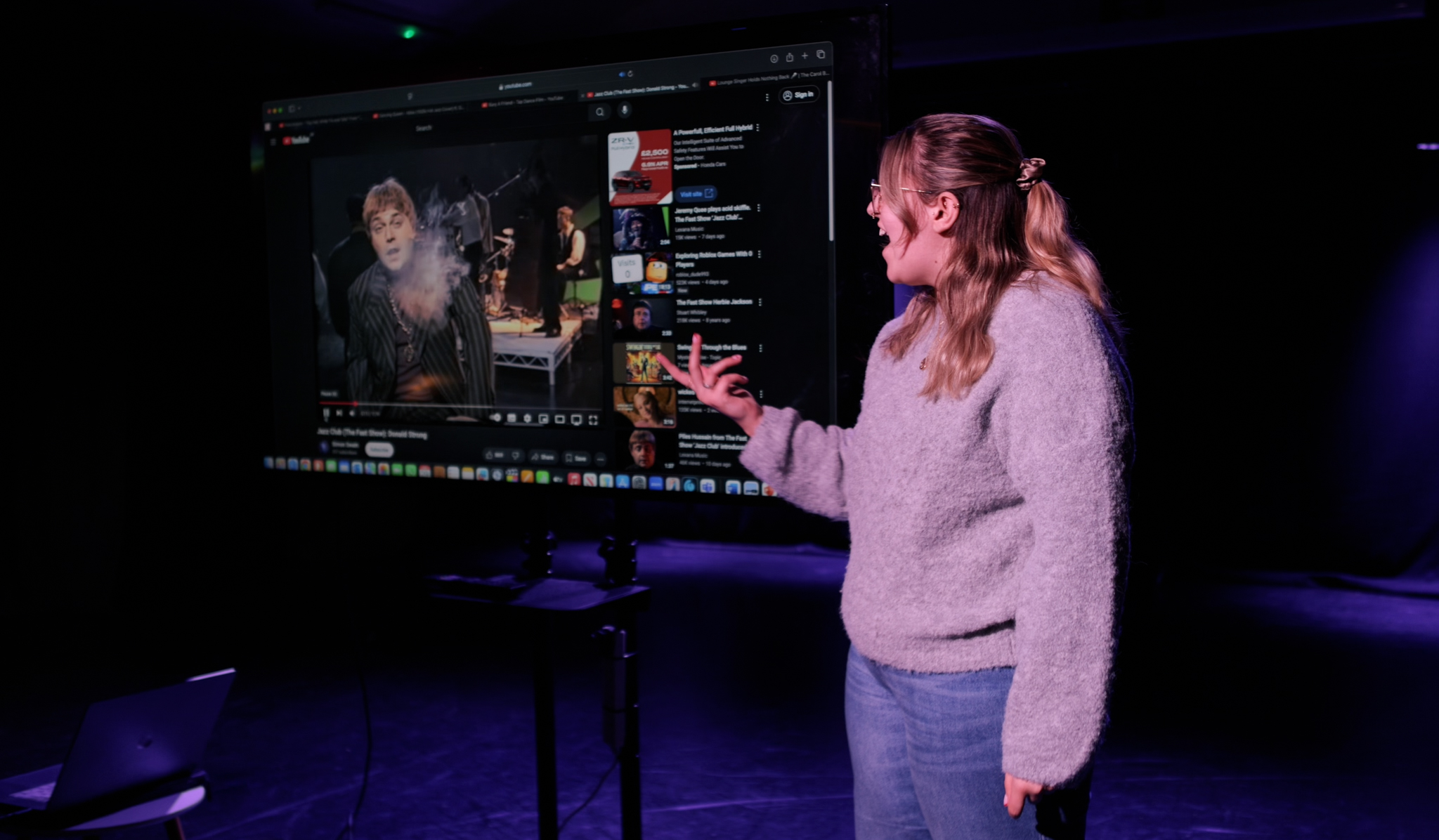
Screenshot
Talk us through how the process worked
Lucie: We started with a concept, then expanded to build the foundations needed for a real business. The most important thing was having passion at the heart of what you’re doing. We learned the practical elements – what you need to start a business, how to promote it, using social media effectively. We gradually applied this general knowledge to our specific business ideas.
Hattie: We had workshops covering not just general business knowledge, but industry-specific information like taxes and self-employment in performing arts. Learning how to split taxes between your performing career and any other employment was really helpful – practical information we’ll need when we enter the industry.
Lucie: We also held a public exhibition where we presented our companies to students around campus. We had interactive elements – I had a spin wheel and taught dance steps for TikTok, Hattie had an emotions guessing game, Hannah had a squirrel puppet mascot for her “Nutty Narratives” business. It was about engaging audiences and showing how we’d present our businesses publicly.
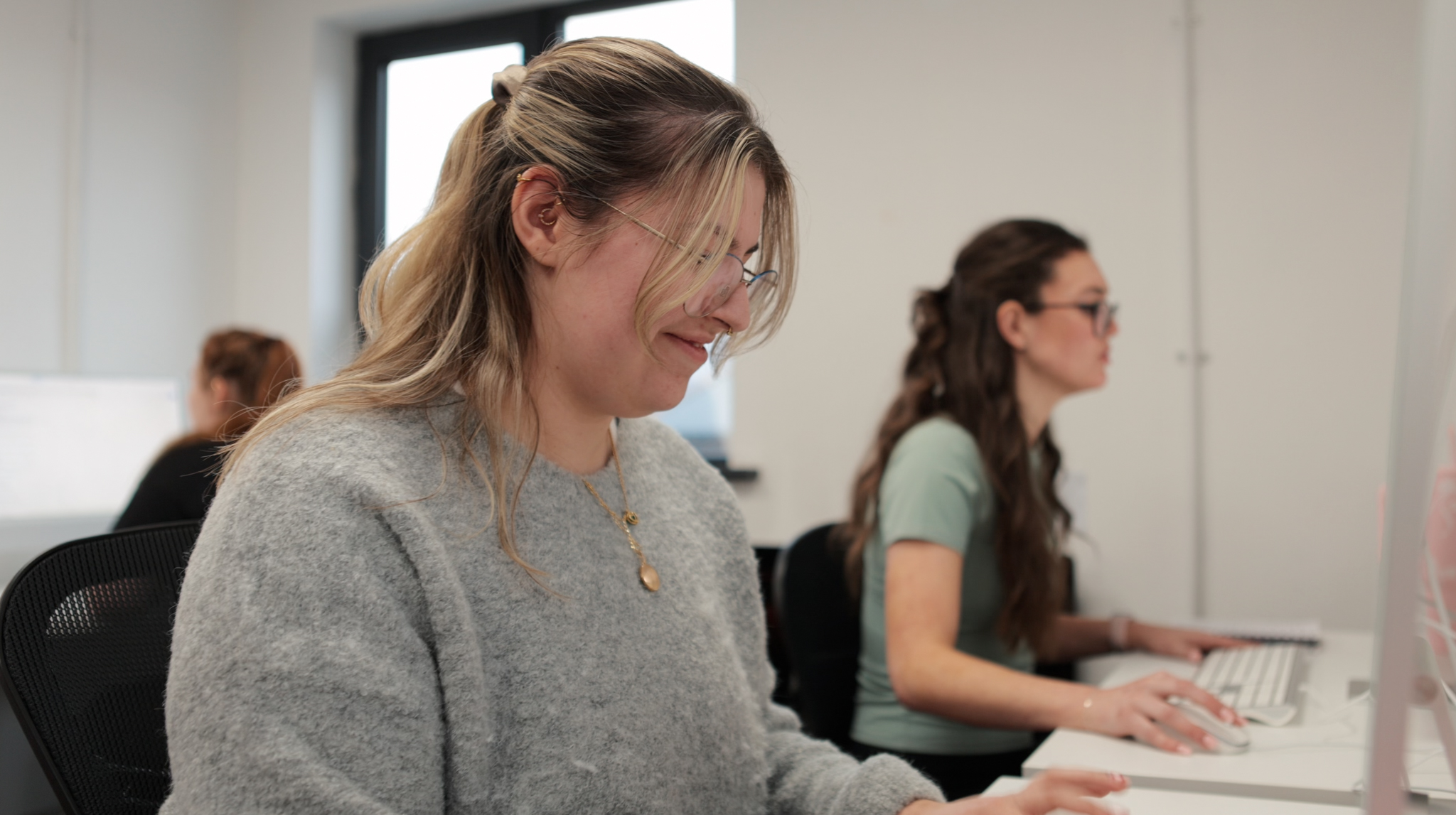
Screenshot
Did you have to do a business pitch?
Lucie: We had to pitch to three people: Paul Saunders, Adam Wilson, and an external business owner to ensure everything we were doing applied to the real world, not just the academic assessment. Once you’ve finished, you’ve got a real plan that you can actually carry out, just go and do it.
Hattie: The panel asked questions about things that weren’t covered in our presentations, which helped us improve on backing up our ideas. Having their different perspectives and questions was really helpful – it filled gaps we hadn’t thought of.
Hannah: They identified gaps like where I mentioned funding, they asked how I would use the money? How would you reinvest for the next year? This helped us hit the specific learning objectives for the assessment.
Did you have any business experience before this?
Lucie: We walked into this knowing nothing about business. The process started with “what’s your passion? What do you want to make something out of?” Initially you have that idea, that spark, but how do you apply it to the real world? We learned from external people like Charlotte Burden, and by the end we realized we’d been given all the tools to build a viable business. Everything was already there – you just had to put it together and explain it properly.
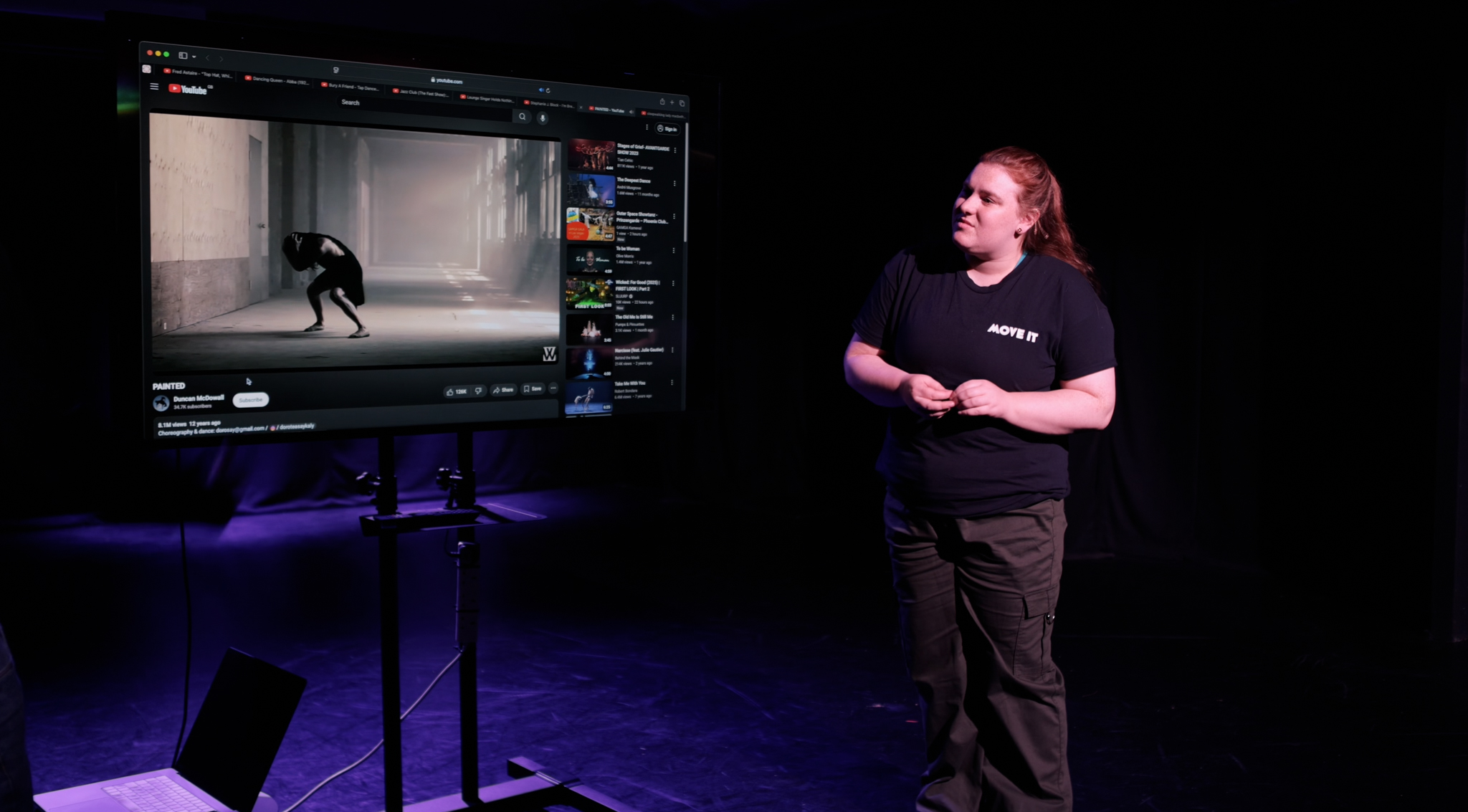
Screenshot
How do you think this has prepared you to navigate your career?
Hattie: The process made me realize how much goes into having a solid business concept – branding, marketing, funding, financial planning. By the end, you could actually take your business and apply for funding right now. We also gained transferable skills like presentation abilities – doing the business pitch to a panel, as we would have to for potential investors, taught me how to navigate his side of business. All the knowledge I’ve gained – information I didn’t know before about starting a business, becoming self-employed, industry-specific details.
Lucie: It directly related to what I want to do. As soon as they said “create a business,” I knew I wanted to dance and perform. Now I know how to register as self-employed, understand Equity minimum rates, and budget for travel, classes, and auditions. I’m ready to press that big green button and make it happen practically.
Hannah: It’s given me confidence for the future. As someone who’s dabbled in writing and creating theatre, this has provided a springboard. I now know how to budget for a show, apply for funding, and understand what people look for in show pitches. It’s cemented the idea of not just performing, but writing and creating my own theatre.
Find out more about our postgraduate courses.
To discover more about Performers College, including auditions and how to apply, contact us at [email protected] or you can Apply Now, or book an Open Day on our Events page.
